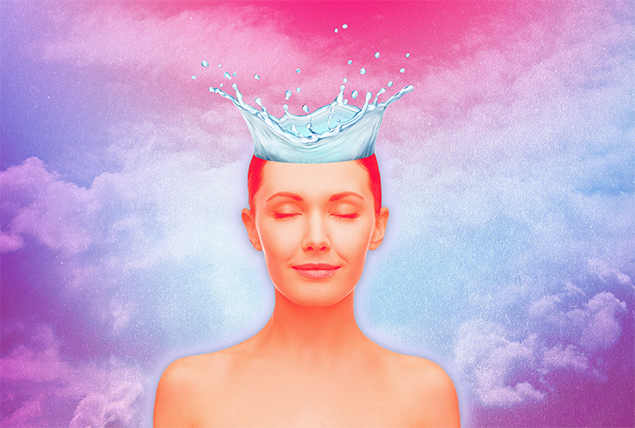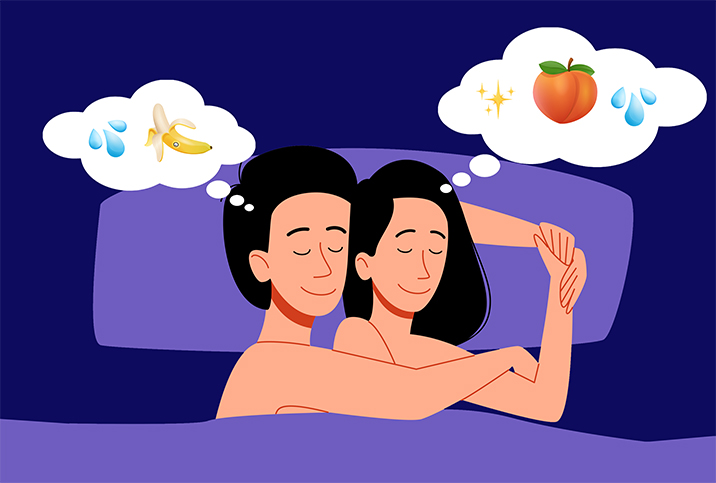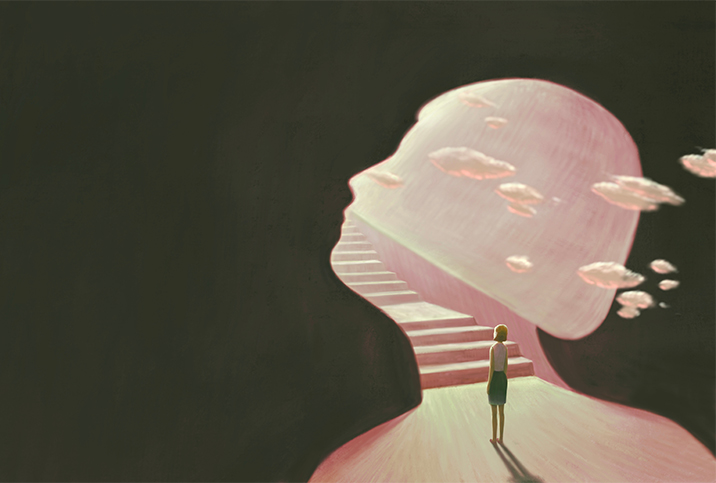No, Wet Dreams Aren't Just for Adolescents

Nocturnal emissions, often called "wet dreams," are involuntary orgasms that occur during sleep. They're nicknamed wet dreams for the ejaculate or vaginal secretions that typically accompany them, which can cause wet bedding or clothing.
Often associated with adolescent boys, wet dreams can affect people of all ages and sexes. Research on them is limited. A study by sexologist Alfred Kinsey in the 1940s stated that 83 percent of men had experienced wet dreams. Results from a 1985 study put that number at 33 percent for women. A 2021 study in the Archives of Sexual Behavior suggests the numbers are 66.3 percent for men and 41.8 percent for women.
What causes a wet dream?
No single cause has been identified for wet dreams. Several possible explanations exist.
Physiology of REM sleep
Wet dreams occur during the rapid eye movement (REM) stage of sleep, according to Brandon R. Peters, M.D., a neurologist and sleep physician at Virginia Mason Medical Center in Seattle.
"[During REM], we have very vivid dreams," Peters said. "The systems of the body are also being revved up and tested, including our reproductive system. A wet dream occurs when the sympathetic nervous system causes an ejaculation in association with REM sleep."
The heightened respiration and heart rate caused by REM sleep can increase blood circulation in the body, including to the sexual organs. For men, this can cause nocturnal erections, also known as "morning wood," Peters said. For women, it can cause an engorged clitoris. In both cases, hypersensitive genitals could contribute to a potential wet dream.
Nocturnal emissions are often accompanied by sexual or erotic dreams, but not always. The link between nocturnal emissions and dreams is not fully understood, Peters explained.
"It may be hypothesized that the body's testing of its systems causes the erection and ejaculation to occur first and that the brain simply makes up the dream experience secondarily to account for the phenomena," he said.
To illustrate this idea, he cited hypnic jerks, or involuntary twitches or jolts in your sleep.
"With hypnic jerks, the nervous system discharges and causes a muscle contraction and movement, sometimes waking the person who may recall a fragmentary dream in which they were falling or kicking," Peters explained.
Hormone levels
Wet dreams are sometimes attributed to surging levels of testosterone, probably due to their association with teenage boys. Peters speculated that the association might be an observation bias, though.
"Adolescent females may experience arousal, including erection of the clitoris and lubrication of the vagina, in association with sexual dreaming," he said. "But the physical signs may not be as obvious as what occurs with adolescent males."
Wet dreams are thought to decrease with age due to the stabilization of hormones. Anecdotally, wet dreams are associated with testosterone buildup. It's been suggested that a lack of sexual release—due to abstinence from sexual activity—might increase the likelihood of experiencing a wet dream.
Medication
Another possible cause of wet dreams is medication. Studies have linked spontaneous orgasms with certain medications, including antidepressants and antipsychotics used to treat depression and the medication rasagiline, which may modify the progression of Parkinson's disease.
Can you stop wet dreams?
Could more frequent ejaculation serve as a deterrent to wet dreams? It is possible, Peters acknowledged. More frequent release—through either masturbation or partnered sex—may reduce the frequency of waking up with wet dreams.
"REM sleep can be suppressed by antidepressant use, and this may rarely be employed if the wet dreams are particularly bothersome," he added.
Ultimately, wet dreams are a healthy, normal and potentially enjoyable experience.
"There may be some minor embarrassment but no significant consequences to experiencing a wet dream beyond a wet spot noted in the morning," Peters said.


















